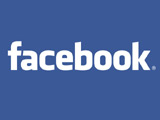Advertisers Face Withdrawal Symptoms As Uncertainty Prevails Over Facebook Ad Platform
Post Views 0
Four out of five Facebook users admit that they have never purchased a product or a service, following advertising or comments on the network. Evidence enough that Facebook needs to rethink its ad strategy, to translate its huge 900 million user strength into advertising dollars.
The online poll also established that Facebook could be facing a decline in popularity, with 34 percent users saying that they were spending less time on it now than six months ago, attributing the decrease in use to Facebook becoming “boring,” “not relevant” or “not useful.” Only 20 percent said that they had increased their Facebook using time.
Gartner analyst Ray Valdes said, keeping users coming back is crucial for all social media services. Facebook continuously has the challenge of Facebook fatigue, of the novelty factor wearing off, and therefore they have to introduce new kinds of interaction.” He said to keep users interested the site had introduced new features such as the “Timeline” interface. A $1 billion acquisition of mobile photo-sharing app Instagram is also on the anvil, he said.
The findings further erodes investor confidence in the network, which is also facing a loss in stock value, which declined by 29 percent, following a despondent IPO, that was way below expectations. The decline in share value, meant that its market value declined by $30 billion.
About 44 percent of respondents said that Facebook’s disastrous entry into the public domain has lowered investor confidence in Facebook and has made them less inclined towards it. In the May 31-June 4 poll of 1,032 Americans, 21 percent said they had no Facebook account.
Facebook’s biggest strength lies in its huge following of 900 million users that makes it a popular online destination that gives stiff competition to well-established Internet players like Google Inc and Yahoo Inc. However, the company’s performance has failed to justify its puffed-up valuations.
A February research by eMarketer hinted that as far as swaying consumers’ decisions were concerned, Facebook performance was poorer than even email or direct-mail marketing. “It shows that Facebook has work to do in terms of making its advertising more effective and more relevant to people,” eMarketer analyst Debra Williamson said.
Facebook’s concerns intensified, when General Motors Co, the third largest advertiser in the United States, announced that it was discontinuing paid advertising to Facebook.
Facebook did not have much to say on the survey, expect point out that companies such as Nutella and restaurant chain Applebee’s, benefitted from their investment with Facebook. The former saw his sales increase by 15 percent, whilst the latter sad that it delivered a threefold return on investment.
It is not very easy to determine with pinpoint accuracy, especially in brand marketing, how effective an ad campaign has been, as the aim of such marketing is not instantaneous sales, but to influence future buying.
Steve Hasker, president of Global Media Products and Advertiser Solutions at Nielsen said the success of an ad campaign must be measured in relation to the product, “If you are advertising Porsche motor cars and you can get 20 percent of people to make a purchase that’s an astonishingly high conversion rate.” “If you are selling instant noodles, maybe it’s not,” he added.
Of late there is an increase in users accessing Facebook over their smartphones. This has caused revenue to fall. The advertising it offers on the mobile version of its site is minimal and the company is yet to figure out how it can increase it.
Even as questions continue to be asked about Facebook ads effectiveness, worth and value, the social network will have to prove that they are indeed as worthwhile and valuable as they purport to be, if they are to prevent friends from fleeing to more lucrative frontiers.
Advertisers Face Withdrawal Symptoms As Uncertainty Prevails Over Facebook Ad Platform by Harrison Barnes

